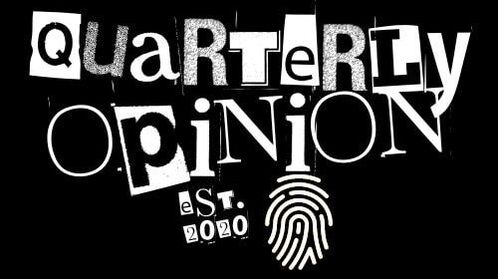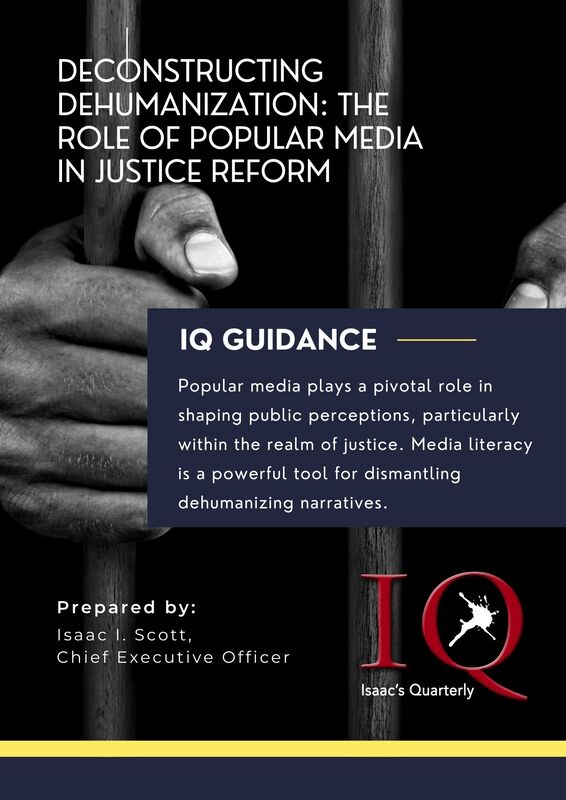|
Deconstructing Dehumanization - The Role of Popular Media in Justice Reform
Introduction Popular media plays a pivotal role in shaping public perceptions, particularly within the realm of justice. This white paper is geared towards media professionals, researchers, and advocates, aiming to provide a comprehensive analysis of dehumanizing narratives in popular media. It goes beyond identification, offering actionable steps to counter these narratives through media literacy strategies, advocacy techniques, and best practices for advocating justice reform. The Influence of Popular Media on Justice Perceptions Research consistently demonstrates the profound impact of media on public attitudes towards the justice system. A seminal study by Surette (1998) highlighted how media portrayals contribute to the construction of societal norms and expectations surrounding crime and justice. Dehumanizing narratives perpetuated by popular media can contribute to biased perceptions, influencing public opinion and policy decisions. Media Literacy Strategies for Deconstruction Media literacy is a powerful tool for dismantling dehumanizing narratives. The Center for Media Literacy outlines key strategies for promoting critical thinking and analysis of media content (Center for Media Literacy, n.d.). This includes encouraging individuals to question the framing of stories, identify stereotypes, and recognize the impact of media messages on societal perceptions. By fostering media literacy, advocates can empower the public to deconstruct dehumanizing narratives. Advocacy Techniques to Counter Dehumanization Effective advocacy is crucial in challenging dehumanizing narratives. The American Civil Liberties Union (ACLU) emphasizes the importance of strategic communication in advocacy efforts (ACLU, 2021). This involves crafting narratives that humanize individuals impacted by the justice system, using personal stories to counter dehumanizing tropes. By amplifying authentic voices and experiences, advocates can reshape public discourse and challenge ingrained biases perpetuated by popular media. Best Practices for Reshaping Public Perception Reshaping public perception requires a multifaceted approach. The Justice Collaboratory at Yale Law School suggests engaging with media professionals to encourage responsible reporting and accurate representation (Justice Collaboratory, n.d.). Collaborating with journalists, content creators, and media outlets can foster a more nuanced and empathetic portrayal of justice-involved individuals. This collaborative effort can contribute to a broader cultural shift in how society views and understands justice. Conclusion: Advocating for Transformative Change Deconstructing dehumanization in popular media is a critical step towards justice reform. By promoting media literacy, employing strategic advocacy techniques, and implementing best practices for reshaping public perception, media professionals, researchers, and advocates can collectively contribute to transformative change. This white paper serves as a guide, urging stakeholders to unite in the pursuit of justice narratives that reflect the dignity and humanity of all individuals. References American Civil Liberties Union (ACLU). (2021). Strategic communication for civil liberties. Center for Media Literacy. (n.d.). Key concepts of media literacy. Justice Collaboratory at Yale Law School. (n.d.). Rethinking crime and justice in the news media. Surette, R. (1998). Media, crime, and criminal justice: Images, realities, and policies. Belmont, CA: Wadsworth Publishing. The information provided herein has been compiled based on Isaac Scott's 10 years of art and criminal legal advocacy. While efforts have been made to ensure accuracy, some references from online sources may be unpublished, and certain materials may require subscriptions for full access. Users are encouraged to use the provided references as a starting point and are further encouraged to conduct independent research to verify and expand upon the topics presented. The content is for informational purposes only and should not be construed as legal advice. Readers should consult with qualified professionals for advice on specific legal matters.
0 Comments
Leave a Reply. |

CHIEF EDITOR
ISAAC I. SCOTT,
Five-time Change Agent Award winner, Multimedia Visual Artist, Journalist, and Independent Consultant. Categories
All
Archives |
|
© 2020 Isaac's Quarterly LLC. The images, pictures, and videos on this website are copyrighted and may not be downloaded or reproduced. These materials may be used only for Educational Purposes. They include extracts of copyright works copied under copyright licences. You may not copy or distribute any part of this material to any other person. Where the material is provided to you in electronic format you may download or print from it for your own use, but not for redistribution. You may not download or make a further copy for any other purpose. Failure to comply with the terms of this warning may expose you to legal action for copyright infringement and/or disciplinary action by Isaac's Quarterly LLC.
|
|
|
Follow Isaac's Quarterly on Social Media
|

 RSS Feed
RSS Feed
